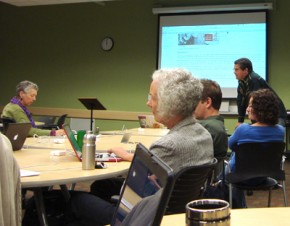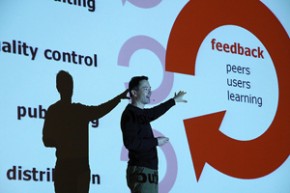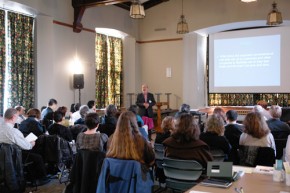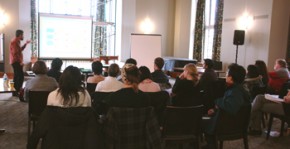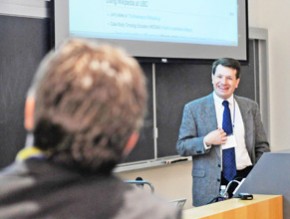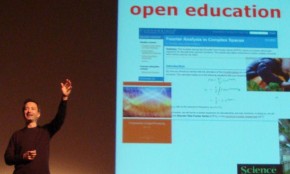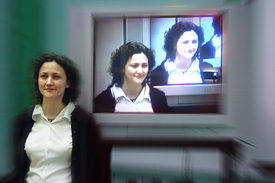Promoting Openness in Higher Education: Which Way Now?
Putting a twist on the traditional lecture style presentations that delegates have become accustomed to, Brian Lamb, from the Office of Learning Technology, led an open discussion at the 2009 Canadian e-Learning Conference. The discussion revolved around the open education movement as well as particular challenges that are being faced.
CeLC 2009 Keynote: Richard Baraniuk
A stack of records and a group of college students in a punk-rock band: these are just two of the compelling and intriguing images that Richard Baraniuk used to launch his keynote lecture on the second day of the Canadian e-Learning Conference. He promised to show the audience a whole new way of thinking about content and distribution – and he delivered.
Experience.do.understand: EduCamp ’09
The inaugural LTI EduCamp was held at UBC’s Irving K. Barber Learning Centre on February 18th, 2009. The morning started off with keynote speaker Richard Rosenberg, Professor Emeritus in the Department of Computer Science at UBC and President of the BC Freedom of Information and Privacy Association.
WikiEducator: A Return to Academic Tradition
Given that we commonly perceive technology to be synonymous with change and innovation, it can seem contradictory to view it as facilitating a return to tradition. Wayne Mackintosh, Education Specialist at the Commonwealth of Learning, sees exactly this potential in the WikiEducator project he established.
Making Wikipedia Work in the Classroom
The common perception is that Wikipedia makes professors shudder; it is supposedly not a credible source, and its use in education is limited. While there is a need to be cautious when using any type of technology, some instructors are out to change Wikipedia’s negative image.
Connexions: A New Way to Share Ideas and Resources
Richard Baraniuk wanted to reach the world through a connected, up-to-date community of open education. Through his project, Connexions, he is changing the way authors, educators, and learners share resources, and is transforming the world of textbooks.
You Have a Right to Know!
A recent trend that has developed over the last few years has been an increase in people’s expectations towards getting access to information. With so much information available on the Internet, people are developing an attitude that they have a “right to know.” John Willinsky and Brian Lamb discussed opportunities and initiatives resulting from the emergence of open source, open access, and open educational resources that are readily available today.
Blogging: Let Me Count the Whys
People blog for different reasons: for some members of the UBC community, blogging is a way to enhance student learning. During last February’s Webloggers Salon held at Telestudios, three prolific UBC bloggers came to discuss how and why they use blogs within the university context.
Get Your Moose On – Northern Voice 2007 is Ready to Romp Again
For those who have yet to experience the power of The Moose, the event is probably unlike any conference you have ever attended. True to the do-it-yourself, community-oriented ethos of weblogging, Northern Voice fosters an atmosphere that allows participants to steal the show, with special emphasis on providing a worthwhile experience to as diverse a range of attendees as possible.
How Can Smaller Faculties Use Video-Conferencing to Increase Teaching and Learning Opportunities for Students and Faculty?
Sandra Schinnerl, Associate Director at UBC’s Faculty of Forestry and her team faced 2 key challenges when they decided to use video-conferencing as a means of increasing course offerings and learning opportunities for graduate students. Find out about their approach, advice, and tips and resources on video-conferencing.
